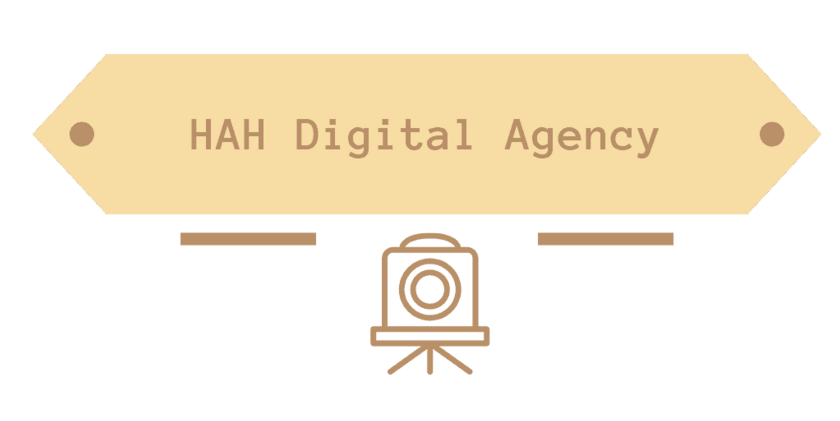Passive income is one of the most attractive aspects of real estate investing. Who wouldn’t want their money to work while they relax? Real estate allows you to do just that. You can earn consistent revenue with less active involvement than other investments. In fact, by choosing the best real estate options, you can build wealth gradually, all while focusing on other life goals. From rental properties to creative leasing, real estate offers numerous ways to enjoy steady cash flow over the long term. Let’s dive into how real estate can be a truly rewarding source of passive income!
1. Rental Properties: The Backbone of Passive Income
Rental properties are the classic example of passive income. When you invest in rental real estate, you purchase a property, lease it to tenants, and enjoy monthly rent payments. Imagine your bank account growing every month without lifting a finger! With the best real estate investments, you can maximize rental income, especially when you have tenants who treat your property with care.
Good tenants mean fewer repairs and consistent revenue, and even if you occasionally need to fix a leaky faucet, the income remains steady. Location plays a huge role here. When you buy in high-demand areas, your rental rates and property value tend to go up, boosting your income. Whether it’s a single-family home, apartment, or multi-unit property, well-managed rentals create a revenue stream that lasts.
2. The Power of Long-Term Appreciation
Real estate doesn’t just give you monthly income; it appreciates over time. That means your property’s value typically rises as the years pass. This natural increase in value helps you build wealth passively. You don’t have to worry about constant market fluctuations. By investing in the best real estate locations, you put yourself in a position to see substantial appreciation over time. You earn rental income monthly, and when you’re ready to sell, you may walk away with a nice profit.
This long-term gain also opens doors to refinancing options. You can refinance your property at a higher value to free up cash for new investments. This cycle of appreciation and reinvestment builds wealth continuously, making real estate one of the most effective passive income generators out there. Essentially, you’re getting paid just for holding on to something valuable—now that’s smart investing!
3. Short-Term Rentals: Maximizing Cash Flow with Flexibility
For those seeking flexibility and high returns, short-term rentals can be a great choice. With short-term rentals, you list your property on platforms like Airbnb, attracting travelers who need a temporary stay. This option lets you set competitive rates, bringing in a higher income than traditional leases. Plus, when the market is hot, you can increase rates, capturing more profit without long-term tenant commitments.
Owning a short-term rental allows you to use your property when it’s vacant, giving you both income and flexibility. Imagine owning a vacation home that pays for itself! With thoughtful management and quality service, you can see excellent returns, especially in tourist hotspots. Short-term rentals require more hands-on effort than long-term leases, but they also open doors to unique income opportunities.
4. REITs: Real Estate Income Without Property Management
If managing properties doesn’t sound appealing, there’s still a way to earn passive income from real estate. Real Estate Investment Trusts (REITs) let you invest in real estate without owning property directly. By purchasing shares in a REIT, you can gain income from real estate assets without dealing with tenants or repairs. Many people consider REITs the best real estate choice for hands-off investors.
REITs pay out most of their profits as dividends, so you can enjoy income without day-to-day hassles. You’re also free to invest in various real estate types—residential, commercial, or even industrial—depending on your preferences. While not as direct as rental properties, REITs offer a fantastic way to add real estate to your investment portfolio and build passive income in a truly hands-off manner.
5. The Secret to Success: Consistency and Patience
The best real estate strategies don’t work overnight; they’re all about patience and consistency. Real estate requires a mindset that focuses on long-term wealth, not quick profits. Consistently investing in or maintaining properties, building relationships with tenants, and managing your finances well are essential steps in creating a steady stream of passive income. Over time, these efforts pay off, especially when your property values rise and rental rates increase.
Building passive income in real estate isn’t just about making money—it’s about building a secure future. Whether you choose rental properties, short-term rentals, or REITs, each option brings you closer to financial freedom. Real estate offers unmatched stability, especially when you invest in areas with strong rental demand. Best of all, real estate gives you control over your financial journey. The path to passive income may require planning, but in the end, it’s worth every effort.
Navigating Tax Benefits: How to Lower Your Taxable Income
Tax season can feel like a rollercoaster ride, but fear not! If you’re savvy about your real estate investments, you can take advantage of tax deductions to help reduce your taxable income. Understanding these deductions is crucial to maximizing your wealth and ensuring you keep more money in your pocket. Let’s dive into some strategies that can help you leverage tax deductions effectively!
1. Know Your Deductions: What’s on the Table?
When it comes to real estate, several tax deductions might surprise you. First, property owners can deduct mortgage interest, property taxes, and even certain closing costs. This means that every month, as you pay your mortgage, a significant portion goes toward interest. By claiming this interest as a deduction, you can lower your taxable income.
But wait, there’s more! If you rent out a property, expenses like repairs, management fees, and advertising costs are also deductible. Every little bit counts, so keep track of all related expenses. If you’re asking yourself, “What’s the best real estate investment?” consider how well it can leverage these deductions. You’ll find that savvy investments in rental properties can significantly impact your tax bill!
2. Depreciation: The Hidden Gem
Depreciation is a powerful yet often overlooked deduction. As a property owner, you can claim depreciation on the property itself, which allows you to write off a portion of its value each year. This means you get to reduce your taxable income without actually spending any money!
The IRS allows you to depreciate residential properties over 27.5 years and commercial properties over 39 years. By doing the math, you’ll see that this can lead to significant tax savings. If you own multiple properties, those deductions can add up quickly. Just remember to keep accurate records of your purchase prices and any improvements you make. This strategy is essential for maximizing the benefits of the best real estate investments in your portfolio.
3. Home Office Deduction: Work and Save!
Do you work from home? If so, you might be eligible for the home office deduction. This deduction applies if you have a dedicated space in your home used exclusively for business purposes. It doesn’t matter if you’re managing your rental properties or conducting real estate transactions; this space can provide valuable savings on your tax bill.
To calculate the deduction, you can use the simplified method or the actual expense method. The simplified method allows you to deduct $5 per square foot of your home office, up to a maximum of 300 square feet. The actual expense method involves tracking your home’s total expenses, including utilities, repairs, and mortgage interest. No matter which method you choose, this deduction can significantly reduce your taxable income while you grow your real estate empire!
4. The 1031 Exchange: Deferring Taxes
If you’re looking to sell one investment property to buy another, the 1031 exchange can be a game-changer. This strategy allows you to defer paying capital gains taxes on the sale of an investment property, as long as you reinvest the proceeds into a similar property. This means you can sell, upgrade, and expand your portfolio without immediately incurring a tax liability.
To utilize this strategy, you must follow specific rules. You need to identify a new property within 45 days of selling your old one and complete the purchase within 180 days. If done correctly, the 1031 exchange can help you leverage the best real estate opportunities without the burden of hefty taxes. This strategy is ideal for those looking to build wealth over time and maximize their investment potential.
5. Tax Credits: Don’t Forget About Them!
In addition to deductions, don’t overlook tax credits! These can directly reduce your tax liability and often provide more savings than deductions. Some credits are available for energy-efficient home improvements, which can be especially appealing if you’re considering upgrades to your rental properties.
Research available credits related to real estate and see if you qualify. Sometimes, it’s as simple as installing solar panels or energy-efficient windows. These upgrades not only improve your property’s value but can also lead to substantial tax savings. Remember, every dollar saved is a dollar earned!
6. Staying Organized: Track Your Expenses
To fully benefit from these tax deductions, staying organized is key. Keep detailed records of all your expenses related to your properties. Consider using accounting software or hiring a professional accountant who specializes in real estate. This investment can pay off by ensuring you don’t miss any deductions.
Create a filing system for receipts, invoices, and relevant documents. By being proactive and organized, you can avoid the stress of scrambling for paperwork during tax season. Plus, when you’re ready to file, you’ll have everything at your fingertips, making the process smoother and more efficient.
7. Consult a Tax Professional: Your Best Ally
Navigating the world of tax deductions can be complicated, so don’t hesitate to seek professional help. A tax advisor with experience in real estate can provide personalized guidance tailored to your situation. They can help you identify deductions you might not be aware of and offer strategies to optimize your tax situation.
Working with a professional can also ensure you remain compliant with tax laws. They’ll keep you informed about any changes in tax regulations that could impact your investments. Remember, when it comes to taxes, it’s better to be safe than sorry!
Rental Income Hacks: Tips to Boost Your Cash Flow
Owning rental properties can be a fantastic way to build wealth and create passive income. However, maximizing your cash flow is key to ensuring you reap the full benefits of your investment. With a few clever rental income hacks, you can boost your earnings while keeping your tenants happy. Let’s explore some easy and effective tips to help you enhance your rental cash flow!
1. Know Your Market: Setting the Right Rent
The first step to maximizing rental income is setting the right rent. Many landlords underestimate the importance of understanding their local rental market. Research comparable properties in your area to determine a competitive price. You want to attract quality tenants while ensuring you’re not leaving money on the table.
Use online rental platforms or consult with local real estate agents to gather data on similar properties. Knowing the average rent can help you price your property competitively. If you’re asking yourself, “What’s the best real estate strategy for me?” start by focusing on setting an attractive and fair rental rate!
Once you’ve set the right rent, consider implementing a small annual increase to keep pace with inflation. This gradual adjustment can significantly boost your long-term cash flow without driving tenants away. Remember, happy tenants are more likely to renew their leases, providing you with stable income.
2. Enhance Property Appeal: Small Upgrades for Big Returns
Small upgrades can go a long way in attracting higher-paying tenants. Consider freshening up your rental with a new coat of paint or updated fixtures. These minor improvements can make your property stand out in a crowded market. A little effort can lead to big rewards!
Think about adding features that appeal to tenants, like modern appliances or energy-efficient upgrades. Many renters are willing to pay more for homes with conveniences that enhance their lifestyle. If your property stands out as the best real estate option, you’ll attract quality tenants willing to pay a premium.
Don’t forget about curb appeal! First impressions matter, so tidy up the landscaping, paint the front door, or add decorative lighting. A welcoming exterior can entice potential tenants to see what’s inside. Plus, well-maintained properties often command higher rents, leading to better cash flow.
3. Reduce Expenses: Keeping Costs in Check
Boosting cash flow isn’t just about increasing income; it’s also about managing expenses. Keeping your costs in check can have a substantial impact on your bottom line. Start by regularly reviewing your expenses and identifying areas where you can cut back.
Consider negotiating with service providers for lower rates on utilities, maintenance, or landscaping. Building strong relationships with local contractors can help you secure discounts and better service. It’s amazing how much you can save by simply asking for a better deal!
Additionally, practice preventive maintenance to avoid costly repairs down the line. Regularly inspect your property for potential issues, such as leaks or damaged appliances. Addressing these problems early can save you money in the long run and ensure your property remains in excellent condition.
4. Screen Tenants Carefully: Quality Over Quantity
Finding the right tenants can significantly affect your cash flow. While it may be tempting to fill vacancies quickly, taking the time to screen tenants is crucial. Quality tenants tend to pay rent on time and take care of the property, which ultimately boosts your cash flow.
Use a thorough application process that includes background and credit checks. Ask for references from previous landlords to gauge their rental history. When you find tenants who are responsible and reliable, you’ll enjoy fewer late payments and less turnover.
Once you’ve secured good tenants, maintain open communication. Keeping a positive landlord-tenant relationship encourages tenants to feel comfortable discussing any issues that arise. Happy tenants are more likely to renew their leases, reducing turnover costs and ensuring steady cash flow.
5. Embrace Technology: Streamlining Operations
In today’s digital age, embracing technology can help you streamline your rental operations. Consider using property management software to handle rent collection, maintenance requests, and tenant communication. These tools can save you time and keep your business running smoothly.
Many software solutions offer online rent payments, making it convenient for tenants to pay on time. Plus, tracking expenses and income becomes a breeze with digital tools. By automating tasks, you can focus on more important aspects of your rental business.
Additionally, consider using social media to promote your rental properties. Creating an online presence can attract more potential tenants and increase your rental’s visibility. Sharing engaging content and high-quality photos can help you stand out in a crowded market.
Your Path to Boosting Cash Flow
Boosting your rental income doesn’t have to be complicated. By implementing these rental income hacks, you can enhance your cash flow and build your wealth. Start by setting competitive rents and making small upgrades to attract quality tenants.
Consider exploring short-term rental options for higher income potential and manage expenses to keep costs low. Remember to screen tenants carefully and embrace technology to streamline your operations. With a little effort and creativity, you’ll be on your way to maximizing your rental income and enjoying the rewards of your investment. Happy renting!
Interested in more valuable articles on real estate. Click here.



